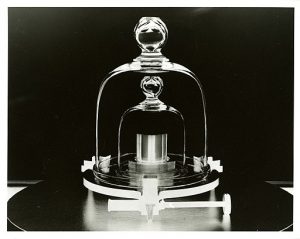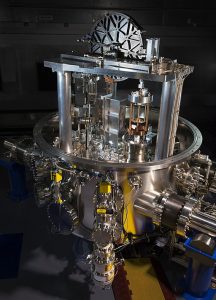How do we know how much anything weighs? Where does the measurement come from when you use the kitchen scale or the scale in your physics lab? Since 1879, the sole definition of the kilogram was carefully locked away in an underground vault in France, the International Prototype Kilogram (IPK). Starting May of 2019, this tightly stored piece of platinum and iridium will no longer officially represent the mass of a kilogram. This renewed definition will be more accessible to everyone and remain accurate for the rest of time, demonstrating the importance of this change.The kilogram is one of the base units as part of the International System of Units (SI).
The International Prototype Kilogram, or Le Grand K informally, is the only physical artifact that determines the official mass of one kilogram. However, since it is stowed away under careful protection by the International Committee for Weights and Measures (ICWM). It is hardly accessible and any changes in mass due to scratches or dirt would change the official mass of the kilogram. Even copies made of Le Grand K may not always be exactly accurate.
This prompted the change by the ICWM to a much more accessible and unchanging value based on a fundamental constant, the Planck’s constant. Planck’s constant, or h, like all other fundamental constants of nature remain the same with time and throughout the universe. Planck’s constant relates the smallest energy packet possible to the frequency of that energy packet, and is defined to be 6.626176 x 10^(-34) kilogram meter squared per second. With the kilogram within this constant, the determination of the kilogram can be made much more precisely without needing to compare it with the actual IPK.
To determine the mass with the new definition, a Kibble balance can be used. The Kibble balance is able to weigh mass against an electromagnetic current, making it incredibly accurate and precise.
Shown below is a video from Veritasium working with NIST (National Institute of Standards and Technology) explaining the new changes for the kilogram and how a kibble balance is used to determine the mass:
For the common household scale, or even anything beyond advanced physics, the new definition of the kilogram will not cause any change in mass. However over time, the required precision for mass in all fields of science will benefit from this change. The importance for consistent and precise measurements in all of science and business are seen.
— Christy Lau


